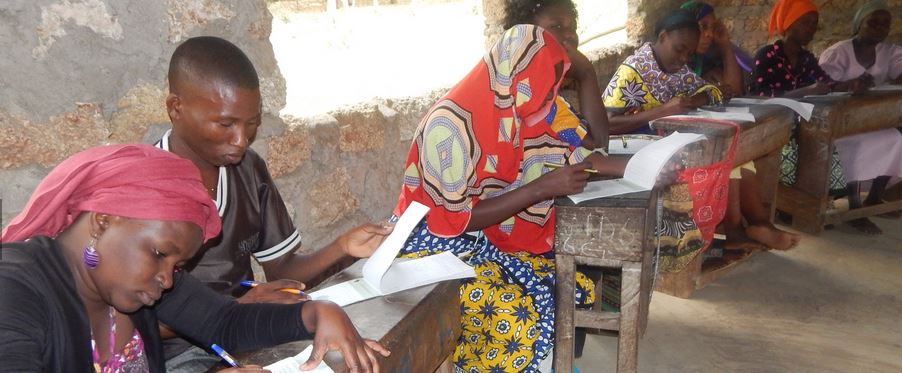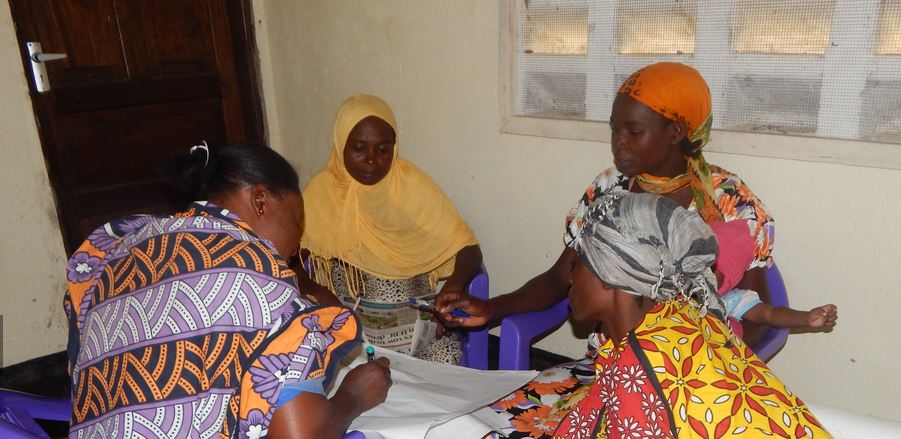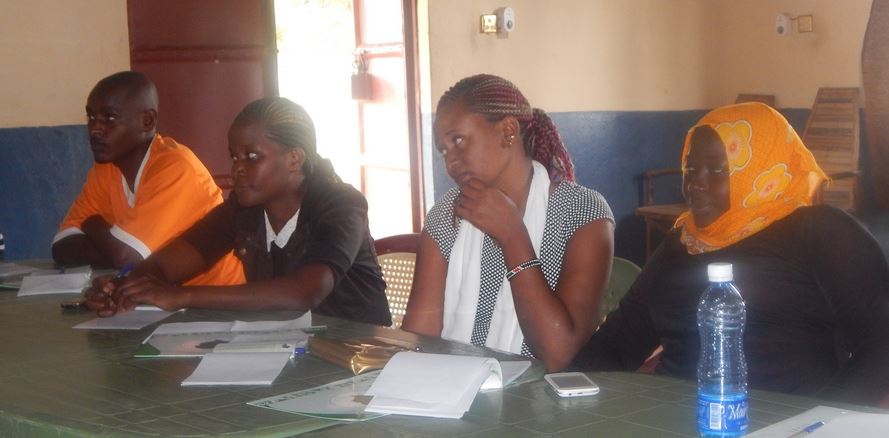Peace Tree – for coexistence and peace in Kenya
By Milena
Rampoldi and Denise Nanni, ProMosaik. In the following our interview with the
association Peace Tree in
Kenya. We talked about the main social issues in Kenya, and about possible
cooperative solutions. Peace Tree is a very important example about how
important it is to connect peace and human rights, and to work with the civil
society, and local authorities in order to promote a peaceful, and tolerant
society struggling against all kind of extremism.

Which are
the main social issues in Kenya?
the main social issues in Kenya?
1. Technology
Mobile Phones – This has alienated
people from the social gathering. People are no longer having face-face
conversation but instead they write short text messages (SMS) to each
other. Using the available communication
platforms such as face-book, twitter and Instagram, people share information and
hold meetings without physically coming together to discuss issues. This has
also changed the way people relate to each other.
people from the social gathering. People are no longer having face-face
conversation but instead they write short text messages (SMS) to each
other. Using the available communication
platforms such as face-book, twitter and Instagram, people share information and
hold meetings without physically coming together to discuss issues. This has
also changed the way people relate to each other.
Despite this, the new mobile technology
has brought a lot of good things that have led to the improvement of people`s
life. For instance it has facilitated banking services, paying bills, shopping
online, renewal of documents e.g driving licences and acquiring means of
transport such as Uber.
has brought a lot of good things that have led to the improvement of people`s
life. For instance it has facilitated banking services, paying bills, shopping
online, renewal of documents e.g driving licences and acquiring means of
transport such as Uber.
2.
Education
Education
This is highly affected by the level of
poverty in some parts of Kenya. Some academically talented children are not
able to proceed with studies as parents have no sufficient resources to either
pay for their higher education or take them to good schools. In some regions
girls are discouraged from taking science subjects with the belief that they
are difficult.
poverty in some parts of Kenya. Some academically talented children are not
able to proceed with studies as parents have no sufficient resources to either
pay for their higher education or take them to good schools. In some regions
girls are discouraged from taking science subjects with the belief that they
are difficult.
There has been frequent teacher`s
strike to demand higher pay from the government. This has affected the smooth
learning of student and as a result they try to use other means to get good
grades. Currently we have the strike of higher education personnel in process.
strike to demand higher pay from the government. This has affected the smooth
learning of student and as a result they try to use other means to get good
grades. Currently we have the strike of higher education personnel in process.
Although there are these challenging
issues on education, the level of literacy has gone up. Most girls are now
enrolled in schools and majority manage to complete their elementary level.
issues on education, the level of literacy has gone up. Most girls are now
enrolled in schools and majority manage to complete their elementary level.
3.
Religion
Religion
Religious radicalism is quite common in
the country although many do not approve it. Some religious groups go to the
extreme of advocating for their religion and holding others as unbelievers,
thereby causing harm to them or discriminating them. Religion is also being commercialised
where some people are misled into giving their property to be prayed for.
the country although many do not approve it. Some religious groups go to the
extreme of advocating for their religion and holding others as unbelievers,
thereby causing harm to them or discriminating them. Religion is also being commercialised
where some people are misled into giving their property to be prayed for.
In spite of these unpleasing elements,
people are in search of God through various religious denominations and
sectors. They hold to their faith in one Supreme Being and understand the need
to co-exist respecting the diversity of faiths.
people are in search of God through various religious denominations and
sectors. They hold to their faith in one Supreme Being and understand the need
to co-exist respecting the diversity of faiths.
4.
Resources
Resources
Land is an important element in Kenya.
Most communities in Kenya are attached to land. This has led to land grabbing
by some powerful individuals while others are driven from where they bought
land just because they are not indigenous people of those regions.
Most communities in Kenya are attached to land. This has led to land grabbing
by some powerful individuals while others are driven from where they bought
land just because they are not indigenous people of those regions.
The gap between the rich and the poor
is widening each year. This is due to poor distribution of resources at local
and national level. As a result there is
a lot of unemployment especially among the youth which contributes to crimes
such as robbery.
is widening each year. This is due to poor distribution of resources at local
and national level. As a result there is
a lot of unemployment especially among the youth which contributes to crimes
such as robbery.
The devolved government has been introduced in
Kenya following the promulgation of the new Kenyan constitution. This is
currently facilitating the allocation of resources both
at local and national level.
Kenya following the promulgation of the new Kenyan constitution. This is
currently facilitating the allocation of resources both
at local and national level.
5.
Security
Security
Security has been a challenge for some
time with Al-shabaab groups realising some attacks in Kenya. This has led to
mistrust of the people who joins the Al-shabaab and later come back to re-join
their families. The families reject them and the government keeps a stern watch
over them. In areas affected by this,
movement is restricted especially in the evenings.
time with Al-shabaab groups realising some attacks in Kenya. This has led to
mistrust of the people who joins the Al-shabaab and later come back to re-join
their families. The families reject them and the government keeps a stern watch
over them. In areas affected by this,
movement is restricted especially in the evenings.
Some extra judicial killings has taken
place in Kenya, for example the killing of a lawyer and his client. This has
raised concern over the security in the country. To counter the insecurity the
government has taken to upgrade the police system and some individuals and
organisation taking to street to denounce the episode.
place in Kenya, for example the killing of a lawyer and his client. This has
raised concern over the security in the country. To counter the insecurity the
government has taken to upgrade the police system and some individuals and
organisation taking to street to denounce the episode.
6.
Health
Health
Cancer and HIV/Aids are the most
challenging diseases right now. Although HIV/ Aids is almost contained, there
is still the challenge that many people who suffer from this deadly disease do not have enough resources to
help them live a healthy life. Depending on where one lives, sometimes it is
hard to get medicine due unavailability of drugs in government hospitals. The
treatment for cancer is sometimes beyond reach for the poor people.
challenging diseases right now. Although HIV/ Aids is almost contained, there
is still the challenge that many people who suffer from this deadly disease do not have enough resources to
help them live a healthy life. Depending on where one lives, sometimes it is
hard to get medicine due unavailability of drugs in government hospitals. The
treatment for cancer is sometimes beyond reach for the poor people.
The fact that medical workers are on
strike these days, people die of diseases that could otherwise be cured.
strike these days, people die of diseases that could otherwise be cured.
Despite all this, availability of NHIF
card for all has fostered equal treatment of people in both public and private
hospitals.
card for all has fostered equal treatment of people in both public and private
hospitals.
The government has embarked on food
distribution to the most affected areas especially of Turkana County.
distribution to the most affected areas especially of Turkana County.
7.
Environment
Environment
Due to climate change, currently there
is draught epidemic which has resulted to mal-nutrition especially among women and
children.
is draught epidemic which has resulted to mal-nutrition especially among women and
children.
Shortage of water has led to death of
animals which is source of food for most pastoralist communities in Kenya.
animals which is source of food for most pastoralist communities in Kenya.
There is environmental degradation
caused by mining and extraction of natural resources activities. This has led
to the climatic changes that are affecting the country adversely.
caused by mining and extraction of natural resources activities. This has led
to the climatic changes that are affecting the country adversely.
Some NGOs and individuals have taken efforts
to advocate for the care of environment advising people on how to preserve the
environment.
to advocate for the care of environment advising people on how to preserve the
environment.
8.
Culture
Culture
This has played a positive and at times
a negative role in the lives of the people.
Some cultures advocate for FGM (female genital mutilation). This has
affected the victim not only physically but also psychologically.
a negative role in the lives of the people.
Some cultures advocate for FGM (female genital mutilation). This has
affected the victim not only physically but also psychologically.
Early marriages find their support in
some of these cultures. For instance
during the forum on the young motherhood, the Imams or Muslim leaders were very
much in support of early marriage. This denies girls the right to education.
some of these cultures. For instance
during the forum on the young motherhood, the Imams or Muslim leaders were very
much in support of early marriage. This denies girls the right to education.
Poverty has led families to marry off
their young daughters in order to get the dowry.
their young daughters in order to get the dowry.

How does
Peace Tree try to address these problems?
Peace Tree try to address these problems?
We conduct trainings of:
·
Peace building- To foster co-existence of people respecting the cultural diversity
Peace building- To foster co-existence of people respecting the cultural diversity
·
Civic Education- To gain knowhow on how the government runs
Civic Education- To gain knowhow on how the government runs
·
Human rights- To help groups know not
only to know their rights but also their obligation as Kenyan citizens
Human rights- To help groups know not
only to know their rights but also their obligation as Kenyan citizens
·
Social Accountability – To equip people
not only with skills that help to hold their leaders accountable on the way
they use power and resources but also to help them develop projects that can
improve their livelihood such as small businesses.
Social Accountability – To equip people
not only with skills that help to hold their leaders accountable on the way
they use power and resources but also to help them develop projects that can
improve their livelihood such as small businesses.
·
Forum- where people come together to
share issues affecting them and find a way forward
Forum- where people come together to
share issues affecting them and find a way forward
·
We network with right minded
organisations and through this we carry
out some activities
We network with right minded
organisations and through this we carry
out some activities
·
Engage the government
Engage the government
How do you advocate for human rights?
·
Trainings- We realise various trainings
to equip citizens with skills and
knowledge to track and report human
rights abuses
Trainings- We realise various trainings
to equip citizens with skills and
knowledge to track and report human
rights abuses
·
Media – We use radio shows to talk
about human rights and the importance of promoting the same.
Media – We use radio shows to talk
about human rights and the importance of promoting the same.
·
Peace marches- To advocate for peace
Peace marches- To advocate for peace
·
Sport Activities -where groups or communities in conflicts are
brought together
Sport Activities -where groups or communities in conflicts are
brought together
·
Sharing research information with various groups and authorities personnel
Sharing research information with various groups and authorities personnel

How has civil
society been responsive to our initiatives so far?
society been responsive to our initiatives so far?
The Kenyan civil society ollaborates in implementing joint activities for instance
public forums. We also cooperate in the implementation of some of our
activities, and release joint statements on important issues.
public forums. We also cooperate in the implementation of some of our
activities, and release joint statements on important issues.
What about your cooperation with local
authorities?
authorities?
We
invite officials from both the National and County government to selected
activities e.g. local chiefs, from the security forces and elected leaders.
invite officials from both the National and County government to selected
activities e.g. local chiefs, from the security forces and elected leaders.
We
also share information from the findings from our activities.
also share information from the findings from our activities.


